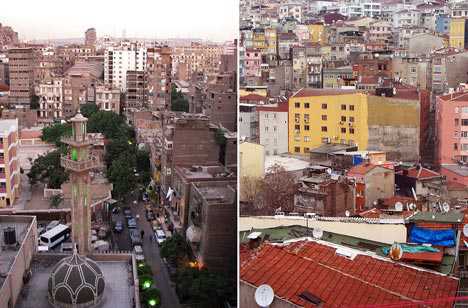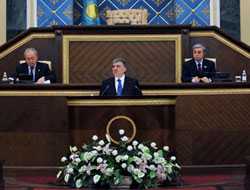by Jennifer Hattam, Istanbul, Turkey
Rapid urban expansion has turned the historic cities of Cairo and Istanbul into overcrowded, traffic-clogged mega-metropolises full of blight, congestion, and pollution. To this problem, similar and unlikely sounding solutions have been proposed in both countries: Build two new Cairos and Istanbuls.

The plans to build two new mixed-used developments east and west of Cairo — not so creatively named Eastown and Westown — drew praise from the Middle East environmental website Green Prophet:
Initially conceived to absorb Cairo’s overflow, and to develop a more pedestrian-friendly model that will ease traffic congestion and pollution, these new metropolitan centers will both service 2.5 million people within 10 years.
Moving away from the former development model that separated residential and commercial areas, forcing residents to own cars or use public transportation in order to maintain their daily lives, Eastown and Westown will knit all services into one urban fabric.
The project also has been conceived with an eye toward sustainability, Green Prophet wrote: “In particular, many designers are considering glazing to reduce solar gain, responsible building materials, good insulation to improve energy efficiency, and passive design that will minimize energy dependency in the first place.”
Plans for two new Istanbuls announced by Turkish Prime Minister Recep Tayyip Erdoğan prior to Turkey’s national election were more controversial. While Erdoğan claimed the two new satellite cities would alleviate overcrowding and earthquake danger, critics slammed the vagueness of the plans and the lack of environmental impact or feasibility studies. They said the new developments would only draw more migration to Istanbul while paving over some of the last forested areas around the city.
via A Tale of Two New Cities for Cairo and Istanbul : TreeHugger.


